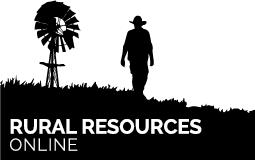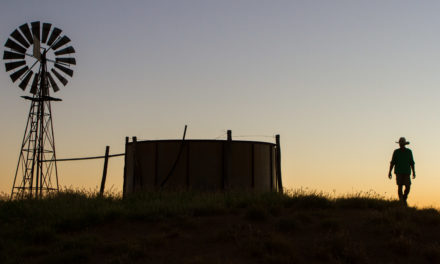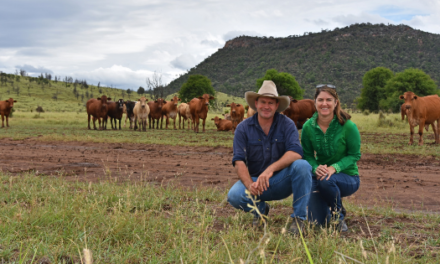Imagine being able to predict the future.
With that skill, we could do something tangible to prepare for whatever lay ahead.
Alas few are blessed with such a sixth sense. That’s why we need to work on our resilience.
The word ‘resilience’ comes from the Latin resilio. It literally means ‘to bounce back’ whether that is from ill-health of relationship breakdowns, natural disasters, climate change, financial worries; even government policies that appear misguided.
For some people, resilience seems to come naturally. They appear to deal with stresses, accept change, make sense of what’s happening and get on with it, without appearing to falter.
Truth is that resilience is as much a process as a personality trait, a strategy for facing life’s challenges well. And the good news is it can be learned, and it can be strengthened.
You can find an awful lot of advice online about ‘building resilience’. Most of it boils down to looking after wellbeing (physical and psychological) and viewing the world through a more positive lens.
Resilient people, it’s oft said, tend to find some silver lining in even the worst of circumstances.
And this, for me, is where laughter yoga can serve as a tool to build the resilience. We tend to think that laughing is about humour and comedy but what’s there to laugh about when your crop has failed, the bank is threatening foreclosure… you’ve had enough.
Laughter yoga, developed by Indian physician Dr Madan Kataria more than 20 years ago, works on the premise that laughter is as natural as breathing and can be practised as an exercise. It doesn’t need jokes, or comedy. You don’t need to be in the mood to laugh: just try it willingly.
When laughter yoga is practised willingly, the body doesn’t distinguish between real and ‘fake’ laughter: it takes note that this mirthful action is prolonged and starts to send cues to release happy hormones that boost mood, lower blood pressure, and leave you feeling like you’ve been on an instant vacation.
Its benefits go further. The exhalation of stale air through laughter exercises forces about 25% more out, meaning an oxygen rich replenishment that sharpens thinking and improves the immune system.
While usually practised with others—the energy and eye contact boosts the contagion of this happydemic—it can effectively be done alone.
Here are a few of my favourite Laugh Out Loud Alone exercises:
Start with a warm up ‘Ho Ho Ha Ha Ha’
Clap your hands with a 1-2, 1-2-3 rhythm, chanting ‘ho, ho, ha, ha, ha’ in time with the claps. Move around, sway, raise and lower your arms as you clap, smiling: speed it up. Continue for a minute or so.
Rise and Smile
Stand tall with legs about shoulder distance apart. As you take a deep breath in, raise your right arm, with clenched fist, above your head and stretch as much as you can towards your left. Exhale “haaaaa” through your mouth with a smile and an unclenched fist. Close your mouth and fist on the inhale and repeat three times. Then change sides and repeat as before.
One metre laugh
Stand with feet slightly apart, both hands stretched out to the left. Slide the fingers of the right hand over the left arm to the elbow while saying ‘Aeeeeeeeee’. Continue sliding the fingers across the chest to the right shoulder, saying ‘Aeeeeee’. Uncurl the right arm so that both arms are full outstretched, tilt your head back and laugh heartily, from the belly. Repeat for the right side. Do three times each side.
Laughter cream
Take an imaginary jar of lotion, scoop a dollop out and ‘rub’ it into your skin —arms, face, legs, belly, back, ears—and laugh as you rub it in all over.
Mental floss laugh
Imagine that you have wrapped a thread of dental floss between your fingers. Now imagine threading the floss between your ears to clear out the ‘stinking thinking’ that can build up, like dental plaque, in the mind. Jiggle it around, to and fro, while laughing. Make it thorough! Then throw the ‘floss’ and the worries away.
The breath is as essential as the laughter. I enjoy this particular breathing exercise between each of my laughter exercises.
Tidal Breath
Hold your arms out in front, at shoulder height, palms up. As you breathe in slow and deep, through your nose, draw your arms in towards your chest. Imagine you are dragging that breath in with your hands and lungs. Hold the breath for as long as is comfortable. As you exhale, extend your arms in front as though you are physically releasing the breath. Repeat 3 times. Now inhale as before but hold a little longer and let the breath out as an explosive laugh. Always complete your laughter session with some slow controlled breaths.
Some tips on starting
Start with 10 minutes, work up to 15 gradually, combining laughter and breaths.
I find laughing first up in the morning sets a great tone for the day.
Some people find it easier to laugh alone in front of the mirror. Try it: it may work for you. (I don’t.)
If you are self-conscious about people hearing you, turn the volume off or down!
Whenever you laugh alone, open your mouth a bit wider to enable laughter to flow from the belly. The goal is to engage the diaphragm.
Finally, these exercises can be done seated. If you’re new to exercise, it’s best to seek medical advice first. Listen to your body: you don’t want to hurt yourself.






Joy what great tips for all of us when we need them most. Thank You
This is great! I’m going to give this a go. Fake it til you make it, right?
If ever there was blog that needed video this is one of them Joy! I can’t kind of understand what you mean, but to see it in action would be super powerful!!
Hi Jenny, I take your point about video and will endeavour to get a few made soon. Thanks for that prod! Laughs and blessings HeatherJoy
I’m not the biggest fan of fake laughing, but love the ‘Australianess’ of this article.
Keep up the fantastic work!
This is fantastic! I had no idea this existed!
Very interesting! Sounds like a beneficial practice. Thanks for sharing
LOL, what a GR8 idea, gets one going, especially first thing in the morning… Thanks
First thing in the morning is a GREAT way to set the tone for the day ahead, particularly when there is much to do. Laughs and blessings, HeatherJoy
I have about laughter yoga and didn’ realise all the benefits. Thanks for these easy exercise, Joy. I will certainly give a couple a go.
A fantastic reminder Heather!
I too have known about laughter yoga, but in my busy life it fell to the wayside and out of my mind. Time to bring it back to the forefront!
So very glad this has resonated with readers and look forward to rural visits in 2018 and beyond, spreading wellbeing through laughter, one community at a time:)